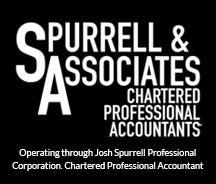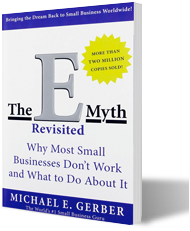Virtual CFO | Why Entrepreneurs Should Review Balance Sheets
Reviewing balance sheets is extremely important for entrepreneurs to do says virtual CFO, especially when they need to make financial business decisions during their fiscal year. The reason this is so important, is because business owners can gain a lot of understanding about the financial health of their business based on their balance sheets. Not only is that important, business owners can also catch if there are any errors on their financial statements by looking at their balance sheet first. Since stakes are much more prevail in it on interim financial statements than they are on year-end financial statements, business owners should be aware of this, and review their balance sheet at first to verify errors, and then to gauge the financial health of their business.
One of the most powerful ways that business owners can you spell sheets to look for errors, is by looking at a six month comparative statements. This is going to help business owners can easily see if there have been any variances in the last six months that donít make sense. Maybe reasons for, or it could be because of years says virtual CFO. My starting to look at their balance sheets this way, entrepreneurs are going to be able to get very good at reviewing this document, and reading it.
Something specific that entrepreneurs can look for in order to see if there are any errors, is on their loan balance. If a business owner is reviewing their six month comparative balance sheet, and notice that at any point there loan balance does not decrease from one month to the next, usually indicates the amount has been entered incorrectly and could be causing all sorts of other errors if itís been entered into one account instead of loan balances says virtuals CFO. Anytime a business owner sees that there loan belts does not decrease, it should cause them to look for if itís been entered incorrectly, and if it has caused any other errors throughout their balance sheet. If thereís no errors, a business owner should check the possibility that they didnít actually make the loan payment in that month. Itís extremely important for business owners to rectify that air quickly, so that they donít default on their loan.
Another way that business owners can check to see if there have been any obvious errors on their balance sheet, is if there credit card balance has not changed, or is negative. While itís possible says virtual CFO for credit card charges to be identical from one month to the next, it is more likely that credit card charges have not yet been added onto the balance sheet. If the business owner is only looking at their income statement, theyíre going to miss this error.
By reviewing their balance sheet, and familiar with what they should look for, business owners are able to not only catch the errors on their financial statements, but be able to gauge the financial health of their business in order to make informed financial decisions.
When entrepreneurs are making financial decisions in their business often they rely solely on their income statement says virtual CFO. This is not advised, for a variety of reasons. Business owners should understand that the most important information exists on the balance sheet, but if they donít understand how to read the balance sheet, they use the income statement which can be problematic. While the income statement has good information, the balance sheet has information organized in a better way in order to help business owners make decisions. Also, if the business owner looks at their balance statement first, it will be able to catch obvious errors that they may not catch if there are just reviewing their income statement.
Business owners should understand what their balance sheet is, so that they can understand why itís important to use their balance sheet rather than their income statement to make financial decisions in their business. The balance sheet will allow business owner to see their financial reserves, and what is scheduled to come into the business and how much cash a business owner has in that business. It should show them what payables are coming in and what payments are going out. This should be complete financial picture of the entire business. A business owner should not assume that just because they have a good month or bad month, that their business is in a good or bad financial state.
Itís important that business owners also understand that their cash is going to show differently on their balance sheet and on their bank statement is virtual CFO. The balance sheet is going to show a more accurate representation of what the finances look like in the business. If a business owner is making financial decisions based on the bank statement, they may not take into account payments that have not yet cleared from the account, which could cause them to think they have more money in their business than they actually do. By making financial decisions based on whatís in their bank account, business owners risk bouncing payments.
Itís also extremely important for business owners to review their shareholder loan account every single month says virtual CFO. The reason for this is because all of the money that a business owner takes out of the shareholder account will be taxed at a personal tax rate which mixes out at 48% in Alberta. If something has been attributed to the shareholder loan account that is strictly for business, business owners should be able to catch that error, and fix it so that they donít end up paying personal taxes on business expenses. Itís much easier for business owners to stay on top of this every single month, rather than trying to do it year end. Not only is it time-consuming, but business owners may end up forgetting what they paid with the amount that came out of that account.

